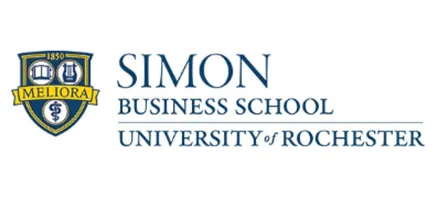
Alexandros Angelopoulos earned his master’s in finance and management from Imperial College Business School
Name: Alexandros Angelopoulos
Birthplace: Athens Greece
Place of residence: Dublin, Ireland
Fun fact about yourself: Big water sport enthusiast, member of the Hellenic Sailing team.
Business School programme: MSc Climate Change, Finance & Management – Imperial College Business School
Can you tell us about your role and what it entails?
As the co-founder and operations lead, I am responsible for co-ordinating our outreach efforts for prospecting clients, forming new partnerships, and liaising with camp managers and state officials during the project implementation rounds of installing our solar-powered devices. In parallel I lead our design, manufacturing, and logistics routes along with our project partners in Greece and abroad.
How does the company you work for help refugees?
Up until today, we have deployed 11 off-grid solar systems in six refugee camps across Greece and Rwanda, empowering refugees with access to mobile phone charging, water filtration, educational content and employment opportunities, with our goal being to keep expanding our portfolio of products and partnerships with other projects to deliver impact where it is needed the most.
We have developed bespoke, low-cost solar-powered infrastructure that provide mobile phone charging, water treatment services (water purification/sterilisation using novel UV-C technology) and access to educational libraries of e-resources to off-grid refugee settlements. Our solar systems in refugee camps use remote monitoring technology and provide near real-time usage data. Moreover, aiming to increase transparency and visibility over spending on social/environmental impact, we are building a web-interface from where companies and investors can build up a quantifiable CSR portfolio, view their impact over time, assess the performance of their sponsored solar-devices and generate sustainability impact reports on demand. We believe by making social impact investing more transparent, spending on emergency relief solar-infrastructure would increase.
What is your motivation behind working in this role?
Today over 700 million people remain without access to clean water, and over 900 million lack access to electricity. Along with many disadvantaged communities, refugees are often at the center of this, with over 30 million people today and growing, often living in unelectrified camps without access to employment and connectivity.
Our team’s aim is through our product range to ensure refugees are connected, healthy and self-reliant. Placing environmental sustainability and the advancing of societal welfare at the forefront of our goals, we are re-envisioning the future of philanthropy and impact investing. We integrate data analytics and machine learning to the delivery of immediate response relief energy and water treatment solutions.
What skills have you utilised from the programme into your career in this role?
Throughout my academic development I have tried to utilise some of the knowledge acquired and the skills developed. Owing to my degrees I bring experience to the team in energy finance, ESG investing, carbon accounting and green & sustainable entrepreneurship through my postgraduate MSc in Climate Change, Finance and Management at Imperial College London. Serving as the president of Imperial’s Social Impact & Responsible Business Club enabled me to collaborate with other passionate classmates and get the chance to talk to industry professional building on my leadership skills. Being a student helped me to develop my critical thinking, the ability to assimilate and process datasets and base my analysis off evidence, build resilience and adaptability to the fast-paced learning environment, and lastly learned how to be a good-listener and effective team player.
Do you believe more b-school graduates need to utilise their knowledge and skills to help refugees?
I believe that b-school graduates are in a good position to make the most of the resources available, leverage off any opportunities present, collaborate, and apply the skills and competencies fostered through their academic programmes to deliver real impact and give back even in the simplest way. Elpis Solar started as an idea on a piece of paper and, along with Samuel Kellerhals (co-founder), our desire to help in a targeted way when the first rafts arrived in Greece back at the onset of the humanitarian crisis back in 2014-2015.
I am a firm supporter of adopting agile/lean ideation models, working collaboratively with motivated like-minded people who would like to make a difference to this world. I am sure there are loads of opportunities around campus for students who would like to get involved, too; for example, through business incubation schemes, accelerators, business challenges, hackathons, programmes from the innovation labs and/or simply through any volunteering schemes available within their college. In my mind, it is important to be able to look at the wider picture and think about how the conceptual frameworks taught in class can be applied in practise for the delivery of value and the creation of opportunities for those mostly in need. I have faith that new b-school cohorts have the passion and drive to take their ideas to the next level helping refugee communities worldwide with novel project ideas.
How can businesses help NGOs and others in tackling this crisis?
I believe there are many ways to contribute towards addressing major social and environmental issues of our times and empower refugee and forcibly displaced communities. I work towards assisting NGOs and corporates to withhold their corporate pledges and deliver real, quantifiable impact through solar power.
Elpis Solar’s mission is to accelerate the transition towards renewable energy and social equity, by providing a first of its kind data-driven platform to build a carbon offset and social impact portfolio. We want to create a one stop shop solution to purchase real, verifiable, and trackable carbon and impact certificates, that can be traded with others in our impact marketplace. NGOs and socially responsible firms, who would like to adopt more sustainable practices and score higher in their ESG metrics can join us in our effort to catalyse the transformation of stagnant refugees into places of opportunity and growth by using next-generation off-grid solar-tech solutions.
What advice would you give other graduates who want to help in this area, whether it be through initiatives or full-time job roles?
If I could give some words of encouragement, it would be about not hesitating to play what I call ‘the student card’ and knocking on ‘as many doors’ as possible during the first stages of implementation of your venture; after all people from the wider industry seem to be mostly willing to provide support and assistance to young aspiring students especially when it is for a good cause. Speaking from my personal, limited, experience in the humanitarian it is important to build bridges and forge partnerships by expanding your networks and making the most out of every opportunity to get feedback and pitch your idea. Also remembering that it is all about ‘giving it a go’ is important, as it will help you kick-start your project which might eventually lead you to ‘pivot’ your original idea to best tailor it to the needs of the communities you serve. Assuming that it is all a linear progression, can side-track you and prevent you from listening closely to the needs of the populations you service, which in the context of the refugee communities are constantly and rapidly changing. Lastly, do not feel alone at any stage of the journey, there will be a plethora of resources and mentorship programmes at your disposal, which along with the contributions of other talented people would make your work more meaningful and very rewarding after all.
Where do you see yourself in the next five years?
Although I might say it always feels daunting seeing that far ahead, in 5 years’ time I would like to be in a position where I can keep growing professionally and as a person while assisting others. It would be ideal if I could keep delivering positive social impact through sustainable energy solutions, empowering communities worldwide to improve their wellbeing.
With Elpis Solar, we envision to create a verified global network of deployed renewable energy solutions in areas in need across the world, which generate real-time usage data which is used to calculate impact metrics such as the amount of carbon offset, amount of clean water delivered, people served, employment opportunities created and other indicators in accordance with the UN’s 17 Sustainable Development Goals and other widely recognised standards/metrics.
Looking at the bigger picture, along with my team, we envision a world where the world’s 940 million without access to electricity and 780 million without access to an improved water source is a thing of the past.
DON’T MISS: THESE B-SCHOOL GRADS ARE HELPING REFUGEES ALL OVER THE WORLD









